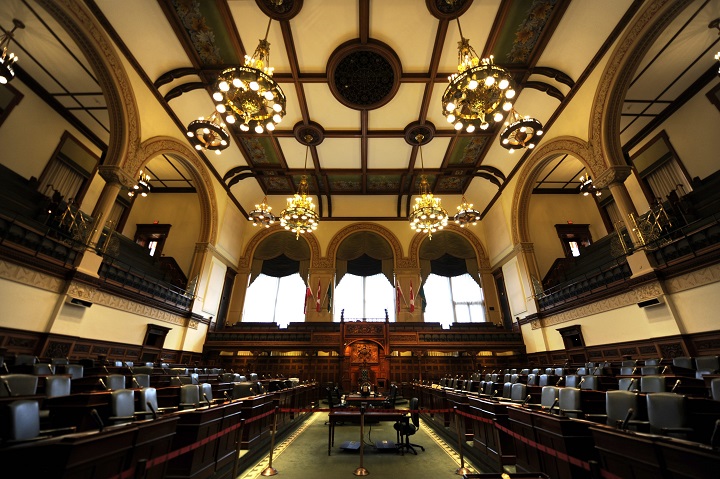TORONTO – Ontario introduced legislation Wednesday to support the implementation of medically assisted dying.

The Medical Assistance In Dying Statute includes a series of amendments to several pieces of legislation, including the Coroner’s Act, the Freedom of Information and Protection of Privacy Act and the Workplace Safety and Insurance Act, to provide more clarity on the issue for patients, families, doctors and other health-care providers.
The changes align Ontario regulations with federal legislation passed last June that guides how medical assistance in dying can be provided, and outlines the criteria for patient eligibility such as having an incurable medical condition.
Health Minister Eric Hoskins says the changes will ensure that benefits such as insurance payments are not denied because of a medically assisted death.
READ MORE: Assisted dying law legal challenge to be joined by excluded Canadians
They will also protect doctors and those who assist them from civil liability when they lawfully provide someone medical assistance to die, added Hoskins.
“These legislative amendments will support the implementation of medical assistance in dying in Ontario by adding clarity and protection for patients and health-care providers,” Hoskins said in a statement.
“Our commitment is to ensure that end-of-life care is provided in a safe, sensitive and compassionate manner.”
Ontario will also establish a care co-ordination service to help patients and caregivers access additional information and services for medical assistance in dying and other end-of-life options.
- Budget 2024: Liberals look to offset drug plan cost with higher smoking, vaping taxes
- ‘Bacterial vampirism’: Deadly pathogens attracted to human blood, study finds
- Landmark smoking ban that would phase out sales passes U.K. parliament
- Health task force blasted over ‘dangerous guidance’ for cancer screenings
READ MORE: Assisted dying in Canada: The clock has run out but what does that mean?
The province already has a clinician referral service to support doctors as they send patients for assessment for possible medical assistance in dying cases.
The legislation would also protect the privacy of doctors, health-care providers and their facilities.
The group Dying with Dignity Canada said public health-care institutions should not be allowed “to hide their policies on medical assistance in dying and other information on whether the service is available on-site.”
“While protecting the privacy of practitioners is essential, public health-care facilities have no right to hide their policies from Ontarians, especially those who are navigating difficult choices at end of life,” Shanaaz Gokool, the association’s CEO, said in a statement. “These institutions have a duty to be accountable to the community members they serve.”
READ MORE: Assisted-dying in Canada: What you need to know about the new law
The group describes itself as a national organization committed to improving quality of dying, expanding end-of-life choices and helping Canadians avoid unwanted suffering.
Medical assistance in dying is an insured service under the Ontario Health Insurance Plan, and the drugs required for it are available at no cost.
Ontario will spend $75 million over three years to improve community-based palliative and end-of-life care.



Comments